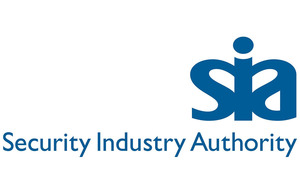Security operative prosecuted for working with cloned SIA licences
On Tuesday 17 October, Victor Obi pleaded guilty at Bexley Magistrates' Court for three offences contrary to the Fraud Act 2006.

The court ordered Mr Victor Obi to pay £1,538 in fines, £1,300 contribution towards prosecution costs and £3,000 in compensation making it a total of £5,838.
Mr Obi’s sentence followed his guilty pleas to the court for using two fraudulent Security Industry Authority (SIA) licences as a door supervisor at venues in the greater London area on 74 occasions between June 2021 and October 2021.
The SIA brought the case as a result of ongoing investigations in the use of fraudulent SIA licences in London. Mr Obi was found to be working with two fraudulent licences with his own photograph but with the names of legitimate SIA licence holders. Mr Obi was interviewed under caution at the SIA’s head office by the SIA’s criminal investigators. He was shown evidential material at the interview and Mr Obi provided no comment replies to questions put to him.
He was charged with two offences contrary to section 2 of the Fraud Act 2006 and one offence contrary to section 6 of the Fraud Act 2006.
Mr Obi was sentenced for the Section 6 offence and ordered to pay a total of £5,838 at a rate of £500 per month with the first payment due within 28 days. He will be required to pay £500 per month thereafter until the full amount has been paid off. The amount should be paid off within 12 months.
Nicola Bolton, one of the SIA’s criminal investigation managers, said:
Mr Obi chose to work as an unlicensed security operative across venues in London putting patrons at risk by his actions. The licensing regime is there to protect the public so that only trained and suitable people can be licensed. He decided to use cloned licences which amounts to the possession of articles for use in frauds under section 6 of the Fraud Act 2006. Along with paying the fine, Mr Obi now has a criminal record.
We are continuing to combat the use of cloned SIA licences and remind industry to conduct thorough due diligence checks on licences of those operatives they deploy. The security features embedded in an SIA licence will help aid employers and they should also request secondary identification documents from the licence holder.
Notes to editors:
- By law, security operatives working under contract must hold and display a valid SIA licence
- Read about SIA enforcement and penalties
- The offences relating to the Fraud Act 2006 that are mentioned above are as follows:
- Section 2 - fraud by false representation
- Section 6 – possession of article for use in fraud
- The SIA licence features several easy-to-check security features, which include:
- on the front of the licence you should be able to see holograms when the licence is tilted backwards and forwards
- the expiry date of the licence is embossed on the bottom of the photograph (not printed on) – you should be able to run your finger over the date and feel that it is raised
- on the back of the licence there is a QR code and a bar code. The bar code should bring up the same licence number as shown on the licence
- a UV light should reveal ‘SIA’ in the top right and bottom left of the licence when scanned across the front. On older licences there will be a watermark pattern on the back of the licence that can only be revealed by the UV
- the address on the rear of the licence should show an ‘E’ post code
Further information:
- The Security Industry Authority is the organisation responsible for regulating the private security industry in the United Kingdom, reporting to the Home Secretary under the terms of the Private Security Industry Act 2001. The SIA’s main duties are the compulsory licensing of individuals undertaking designated activities and managing the voluntary Approved Contractor Scheme.
- For further information about the Security Industry Authority or to sign up for email updates visit: www.gov.uk/sia. The SIA is also on LinkedIn Facebook (Security Industry Authority) and Twitter (@SIAuk).